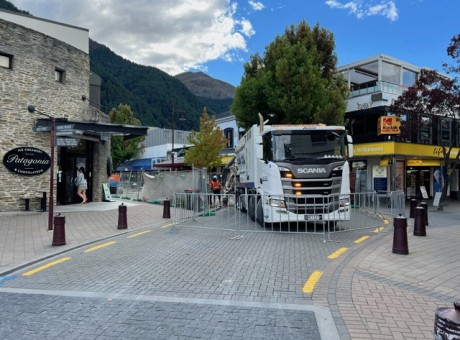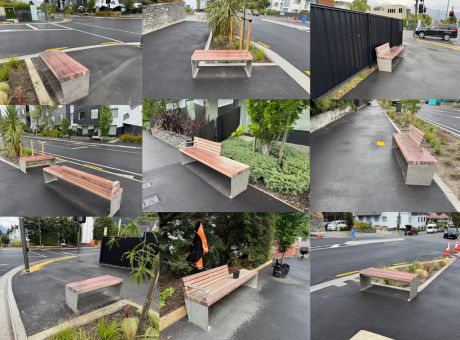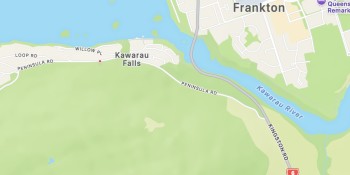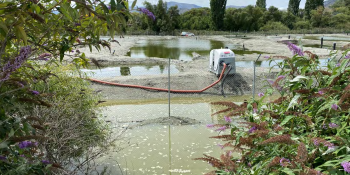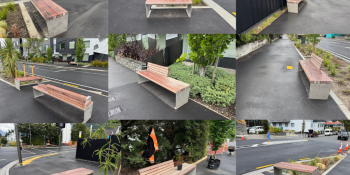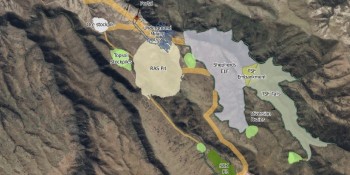Q'town social services turn people away - Covid effects deepen
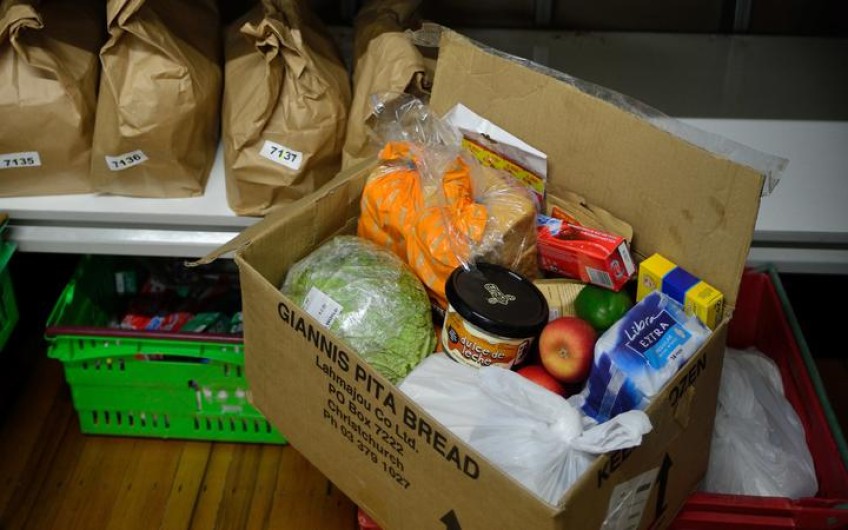
On Fridays Happiness House manager Robyn Francis divvies up donated food to Queenstown residents who need a feed.

Happiness House manager Robyn Francis says people are feeling helpless, overwhelmed and completely uncertain about their future.
Last week, she had to turn people away, the need was so great.
There’s no shortage of community support for now, she says.
“We have lots of businesses who are offering food, people with their farms who are dropping off meat.”
It’s simply the huge number of people with nowhere else to turn for support that is stretching the service, she says.
“Social services in Queenstown aren’t really equipped to deal with the volumes we are seeing.
“Every day is full on. For us, there’s not really any respite. Even taking lunch breaks you feel bad because you know calls are going to be unanswered.
“I feel like we’re not even spending enough time with people, but we have to do the best we can with that person, knowing there’s someone else there waiting.”
For many Kiwis, the ‘new normal’ means some flexibility to work from home a few days a week, postponing overseas holidays in favour of a local roadie, or sneezing into an elbow.
For many in Queenstown, the ‘new normal’ is far bleaker.
Ms Francis says the people she is talking to feel helpless, overwhelmed and completely uncertain about their future.
“It’s heartbreaking.
“You can see that they don’t want to be a burden to anyone, and you can see they’re being really brave, but they’re on the verge of tears and you can just feel it when you talk to them - they’re just trying to hold it together.”
And the end’s far from sight.
The impact of Covid on Queenstown is set to deepen.
Modelling from Infometrics shows the Queenstown district's GDP declining by almost a quarter and close to 8000 jobs being lost in the coming year.
Right now, Happiness House and other social services in the resort town are bracing themselves for a second wave of hardship.
People who know their wage subsidy is about to end are starting to trickle in, Ms Francis says.
“They just have no idea of how they’re going to continue, especially if they have children.
“There’s going to be lots of families that aren’t going to be able to continue to live here because the benefit is not going to be able to cover their rent or their mortgages.”
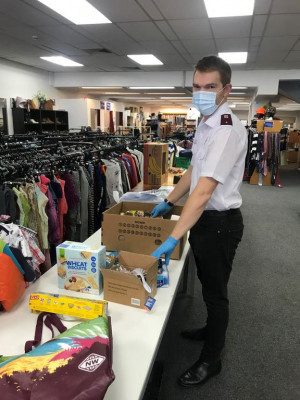
Andrew Wilson from the Salvation Army says there's no hope welfare requests will 'taper off'. (Photo RNZ/Belinda McCammon)
Salvation Army’s director of community ministries Lieutenant Andrew Wilson says Queenstown is an expensive place to live.
He's starting to see requests for help from people who may look like they’ve got it all – a house, a car or even two.
But that usually means Work and Income benefits are not an option for them for now, he says.
“The cost of living here in Queenstown hasn’t changed dramatically and so even if someone has moved down to 80 percent of their normal work, they’ve fallen under that, I don’t want to call it the poverty line, but their ability to live week to week.”
Approximately 200 people a day are registering with the Civil Defence welfare programme, he says, and more than 7000 requests for welfare assistance have been received from members of the community struggling to make ends meet. Almost one-quarter of those are from New Zealand permanent residents or citizens, the remainder from people on work or short-term holiday visas.
Hopes requests may “taper off” have been extinguished, Lieutenant Wilson says.
Like at Happiness House, he’s working to deliver food parcels, and, more recently, winter clothing and bedding to those who have nowhere else to turn.
“There’s situations where people weren’t expecting to be here this long. But, they lost their job, they’re stuck and have no means of purchasing a winter blanket or a fleece or those sorts of things, so we’re here to support them.”
In the past, Lieutenant Wilson has said this type of short-term welfare is not the answer – giving food parcels and material goods is “like putting a band-aid on the Titanic”.
He continues to call for Government support for migrants in Queenstown, many of whom are unable to travel home, are without a job, and have little support to call on, yet may still have to stump up for large rent bills.
In this Covid-climate, Government has the legislative ability to provide a benefit to migrants, he says.
And that cash in pockets would relieve some of that 200-people-a-day pressure, leaving his service to focus on the extreme end of the issue rather than the bulk, he says.
Across the country, as the virus numbers dropped and a state of emergency was lifted, civil defence set-ups began to shut up shop, handing back some of the welfare burden to local service providers.
That can’t happen yet in Queenstown, Lieutenant Wilson says.
“We’re not set up to face that level of increase.”
His message for central government: “If something doesn’t happen soon, then this safety net, which is social agencies, here to support people, is going to crumble.”
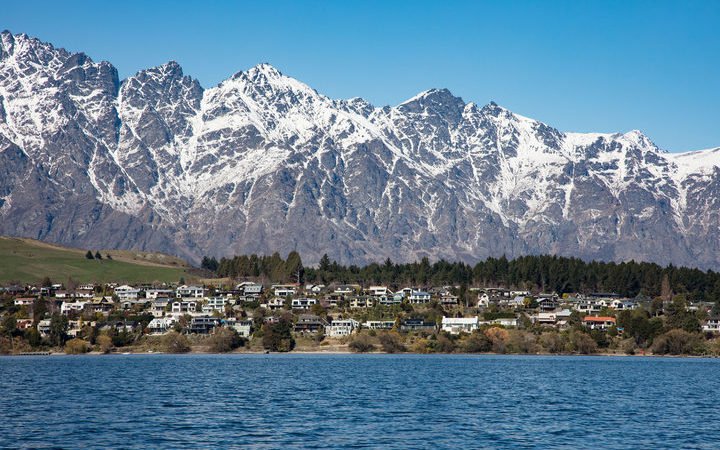
Queenstown may be the envy of many, but life in the resort town is set to get increasingly uncomfortable for some of the seemingly comfortable.
Rachel Reece, who works for the Queenstown Citizens’ Advice Bureau, says it’s the complexity of the problems people are facing, as well as the sheer volume of those needing help, that’s challenging her volunteers.
“The clients that are coming in are not just coming in with one issue. They’re coming in with multiple issues: ‘I’ve lost my job, I’m unsure about my visa status, can I stay, I want to get another job but I don’t know if I’m able to, I’m on a fixed-term lease, how do I get out of it, I’ve found somewhere cheaper to stay but my landlord won’t give me my bond back’.”
She agrees with Lieutenant Wilson some good options need to be available for struggling migrant workers.
“The problem is, basically everyone is saying the same thing: ‘If you haven’t got a job, then you need to consider leaving town.’ But it’s just not that easy for these migrants that have no way of getting home. And, the thing is, for a lot of them home is here.”
She’s also starting to hear stories about increasing discomfort amongst the seemingly comfortable.
“I’m very concerned about the next wave of people, which will be the mums and dads who both have to work and one of them is out of a job and they’ve got a big mortgage on a house in Queenstown and they’ve got kids to support.”





